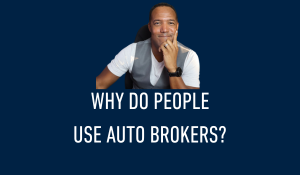Why Your Credit Score Matters When Buying a Car
At RH Auto Brokers, we believe in educating our clients, not just selling cars. One of the most overlooked parts of the car buying journey is your credit score — and today we’re breaking down why it’s such a big deal.
What Is a FICO Score and Why Should You Care?
Your credit score is like a financial report card. It tells lenders how trustworthy you are when it comes to borrowing money. Whether you're buying a house, furniture, or — in this case — a car, your FICO score determines how much you're going to pay to borrow that money.
Your score is based on a few things:
-
Payment history
-
Current debt load
-
Length of credit history
-
Types of credit
-
New credit inquiries
A higher score means you’re less risky to lenders — which means they reward you with lower interest rates.
The Real-Life Cost of Bad Credit
Let’s break it down with a real example. Say you’re financing a $30,000 car in Colorado Springs, where the tax rate is around 8.2%. If your credit score is 720 or higher, you might qualify for an interest rate as low as 5.99%. Over 60 months, that’s a monthly payment of around $645 — and about $5,300 in total interest paid.
But what happens if your credit score is just 650? That rate could jump to 10.2%, bringing your monthly payment up to $712. Now you're paying over $9,300 in interest. That’s a $4,000 difference — just because of your credit score.
And that’s not even the whole story. A lower credit score might also mean you’re forced into older, higher-mileage cars to get the payment you want. That can lead to more repairs, fewer warranties, and even higher costs down the road. Cheap isn’t always cheaper.
Why Working On Your Credit Is Worth It
Your credit score doesn’t just affect car loans — it affects your entire financial life. That’s why it’s worth the effort to improve it.
Here are some practical tips:
-
Lower your credit card utilization: Try to stay under 50% of your total available credit.
-
Catch up on missed payments: Make on-time payments a priority.
-
Consider a co-signer: A strong co-signer can help you lease or finance a better vehicle while building your own credit.
-
Lease strategically: A short-term lease with manageable payments can help improve your score if you stay current.
Bottom Line: Credit = Buying Power
Better credit equals lower interest, more options, and stronger buying power. At RH Auto Brokers, we help you understand these numbers before you sign anything — so you can make the smartest move for your money.
If you have questions about financing, leasing, or want help reviewing your credit options, let’s talk. We’re not here to sell you a car. We’re here to help you make a confident, informed decision.

.webp)
.webp)
